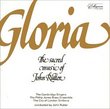| All Artists: John Surman Title: Spaces in Between (Ocrd) Members Wishing: 2 Total Copies: 0 Label: ECM Records Original Release Date: 1/1/2007 Re-Release Date: 8/21/2007 Genres: Jazz, Special Interest, Pop, Classical Styles: Avant Garde & Free Jazz, Historical Periods, Modern, 20th, & 21st Century Number of Discs: 1 SwapaCD Credits: 1 UPC: 602517235861 |
Search - John Surman :: Spaces in Between (Ocrd)
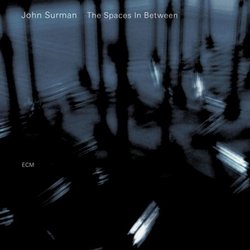 | John Surman Spaces in Between (Ocrd) Genres: Jazz, Special Interest, Pop, Classical
This is a development of the John Surman Coruscating project, now nearly a decade old, in which the reeds virtuoso and his long-time jazz/classical bass partner Chris Laurence explore chamber jazz with a classical string q... more » |
Larger Image |
CD DetailsSynopsis
Album Description This is a development of the John Surman Coruscating project, now nearly a decade old, in which the reeds virtuoso and his long-time jazz/classical bass partner Chris Laurence explore chamber jazz with a classical string quartet. The Trans4mation String Quartet, notably violinist Rita Manning, demonstrate a subtler understanding of Surman's intentions than on Coruscating, and Manning's unaccompanied account of the title track is the centrepiece. The echo of the St Gerold Church broadens the soundscape for the leader's powerful baritone sax on the gently swaying opener and the haunting North African cadences of Mimosa (written for oud player Anouar Brahem). The 1970 Surman classic Where Fortune Smiles (originally a full-on roar with John McLaughlin) now substitutes a silky grace for its old muscularity. Wayfarers All, a typical Surman posh knees-up, is rural-sounding but loose, and the romantic Winter Wish is an exquisite exercise in extended soprano-sax improvisation, sounds skimming and darting like moths in pools of light. Some jazzers will miss a rhythm section's punch, but the textures are delicious. Similarly Requested CDs
|
CD ReviewsA Masterpiece T. L. Throop | Austin, TX USA | 01/25/2008 (5 out of 5 stars) "British baritone and soprano saxophone master John Surman truly deserves more renown than he has attained on this side of the pond. Throughout his tenure at ECM he has never put out, or otherwise been associated with, anything less than a superb recording. While not as strong as his best effort ("Stranger Than Fiction") this is nonetheless a masterpiece. The pristine qualities that signify the very best of ECM recordings are in full bloom here: the clarity, subtlety, and, yes, the silence that really is "the spaces in between" the music. Like a kid who can't keep his hands out of the cookie jar, Surman returns to a "chamber jazz" setting, with the results surpassing his previous such endeavors. The Trans4mation quartet is top notch and Surman seems secure enough in his musical vision to let them take the lead on many tracks. But make no mistake, this is a Surman session all the way. The album builds slowly in intensity reaching a peak about three-fourths of the way through and then mellows out to the conclusion. Great stuff for late nights or early mornings. Prior to his association with ECM, Surman was a fierce force in the English free jazz scene; he could honk, squeal, and blow with the best of them. Here he revisits a piece from those days, "Where Fortune Smiles," and it sounds nothing like the original. Like fine wine and single malt scotches, John Surman just gets better and better with age (although some of his "vintages" are superior to others). All in all, this is one of those albums I would take with me to the proverbial deserted island." Excellent but........ David J. Ohanlon | Lilyfield, NSW Australia | 12/07/2008 (4 out of 5 stars) "Do you classify this John Surman disc as (Chamber) Jazz or Classical Music? I only ask the question because a number of people not totally familiar with ECM (& New ECM in particular) may not realise just how far this label sometimes pushes "Jazz" well into the realm of "Classical" Music. Take the opener "Moonlighter" for example - it begins with lilting middle-lower register violins with minimal slow bass joining in before Surman's gorgeous Baritone sax starts carrying the main theme in which he is frequently joined &/or underpinned by long, low violin & cello bowing. Indeed, most of the tracks on this album follow a very similar pattern or at least a very similar structure/ambience. So, here I have to admit my personal bias - I'm not a big fan of prominent Violins in Jazz; when done well (& here I think primarily of Mark Feldman's work with both John Abercrombie & John Zorn) it's a delight but it also tends to be solo violin rather than as part of a quartet or more. So, although this album easily avoids the worst of violins in jazz (ie. the overbearing slushy, soppy, orchestral stuff) what this album DOESN'T do is give us Surman as a pre-eminent voice (indeed, as elsewhere noted, on the title track it's just Rita Manning's solo violin - brilliant & no doubt exceedingly virtuosic but is it "Jazz"?) Does it have to be "Jazz"? Maybe not, but this little black duck would certainly prefer it if clearly it was - when I buy a John Surman album I want to hear his (mainly Baritone) Sax & Bass Clarinet above all other instruments! I want him to strain, stretch, peer into deep & dark corners of my psyche, energise & uplift me. Alas, the overall tone on this disc made me frequently feel I was simply listening to different movements of the same classical suite or concerto, albeit exceedingly well performed & beautifully recorded. Indeed this may, of course, be perfectly fine for some &, if so, you shouldn't hesitate to buy this disc. To summarise, overall for me the music is exceedingly pleasant & as noted exceedingly well performed & recorded but it is hardly thrilling. Best "tracks" are "You Never Know" & "Winter Wish"." Debussy + jazz + minimalism fCh | GMT-5, USA | 05/17/2009 (5 out of 5 stars) "It is not easy to describe (this) music in words. From time to time, I dare do it.
I generally try to listen to most any ECM recording I can get my hands into. Their output is good, not consistently exceptional and, at times, great proof that Jazz is well across Atlantic. Here, we have John Surman and a string quartet continuing on the footsteps of Charlie Parker with Strings: The Master Takes, Stan Getz's Focus, or Gil Evans and Oliver Nelson with their sense of orchestration. Surman distinguishes himself through his subdued acrobatics--no, it's not an oxymoron, for he only sparingly enters the flow of music, as far as volume and frequency, but when he does it is of the highest control and technique. Think of Miles Davis. The music itself is a combination of styles such as classical/chamber, jazz, ambient, impressionist, all punctured and connected by Surman's horn. Yes, the central song (# 6) is a violin solo, but it's the space between, or reverted peak, two halves of various levels of horn involvement. It hears as labor&love, slowly evolved, jocular and austere, going over long melodic and temporal arcs. From the notes, which as if to follow the music consist mostly of images, I read that Surman is the composer. I could think of him as a Debussy who witnessed jazz and minimalism." |

 Track Listings (11) - Disc #1
Track Listings (11) - Disc #1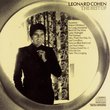

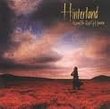
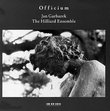
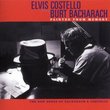
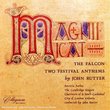
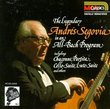
![Sly & the Family Stone - Greatest Hits [Epic]](https://nationalbookswap.com/cd//m/63/8263/18263.jpg)
